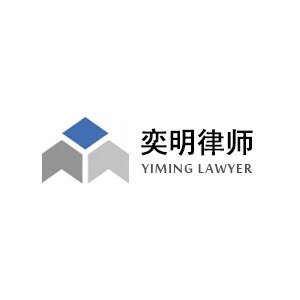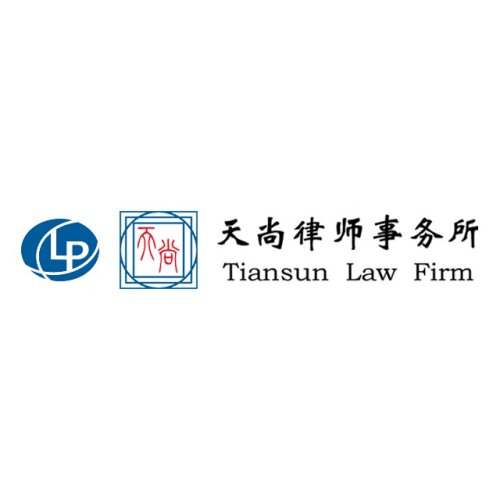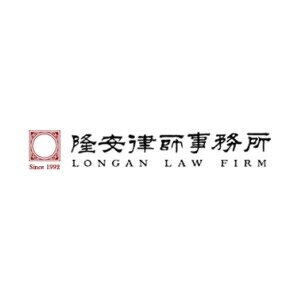Best Pension Lawyers in Beijing
Share your needs with us, get contacted by law firms.
Free. Takes 2 min.
List of the best lawyers in Beijing, China
About Pension Law in Beijing, China
Pension law in Beijing, China, is governed by a series of regulations and legislations that outline the provisions and management of retirement funds and social security benefits for workers. The system primarily functions under the public pension scheme, which mandates contributions from both employers and employees. This compulsory setup ensures financial security for individuals upon retirement. In Beijing, pensions are managed by the local Social Security Bureau, which ensures compliance with the national regulations while addressing local needs and circumstances.
Why You May Need a Lawyer
Engaging a lawyer in matters related to pensions and retirement benefits in Beijing may be necessary due to the complexities involved in understanding and navigating pension laws. Common situations where legal assistance is beneficial include disputes over entitlements, incorrect calculations of pension benefits, challenges in claiming social insurance, and negotiation of pension fund management. Lawyers can also provide guidance if there are changes in employment status affecting contributions, or if an individual requires assistance in understanding their rights and options regarding pension plans.
Local Laws Overview
The pension system in Beijing is largely influenced by national laws with specific local regulations that may differ slightly to meet the regional requirements. Key elements include compulsory participation in the basic pension insurance for urban employees, voluntary participation for rural and non-salaried urban residents, regulations on fund contributions by both employer and employee, and the administration of pertinent insurance funds. Amendments and updates to these regulations can occur, reflecting economic changes, demographic shifts, and governmental policy directions. Therefore, understanding the local application of these laws is crucial for both employers and employees in Beijing.
Frequently Asked Questions
What is the basic pension insurance system in Beijing?
The basic pension insurance system in Beijing is part of the nationwide social insurance scheme mandatory for urban employees. It involves contributions from both employers and employees to provide financial support during retirement.
How are pension contributions calculated?
Pension contributions in Beijing are a percentage of the employee's salary, with specific rates legislated by government regulations. The contribution consists of portions from both the employer and the employee, which are subject to annual adjustments.
Can non-salaried workers participate in the pension system?
Yes, non-salaried workers, including rural residents, can voluntarily contribute to the pension insurance system under specific regulations that cater to such groups in Beijing.
What should I do if there is a discrepancy in my pension benefits?
If you notice any discrepancies in your pension benefits, it is advisable to consult with a lawyer specializing in pension law to help review your case and liaise with relevant government bodies for resolution.
How can changes in employment affect my pension contributions?
Changes in employment may influence the amounts contributed to your pension fund, both from the salary base and contribution rate aspects. Legal advice can help ensure that any transitions are handled correctly to maintain your benefits.
Are expatriates working in Beijing required to contribute to the pension fund?
Expatriates employed in Beijing are generally required to participate in the pension fund, similar to local employees, unless exempted due to bilateral agreements between China and their home country.
What are the consequences of failing to contribute to the pension scheme?
Failure to contribute can result in penalties for both employers and employees and may affect the employee's future pension benefits. Legal guidance can help manage compliance and address non-contribution issues.
Is it possible to transfer pension rights across different regions of China?
Yes, transferring pension rights across regions is possible under defined national policies, although the process may involve specific administrative steps, for which legal expertise can be beneficial.
How are pensions adjusted for inflation over time?
Pensions in Beijing are subject to periodic adjustments to account for inflation. These adjustments are typically legislated by the government based on economic indicators to ensure the purchasing power of benefits.
Where can I address grievances regarding pension management?
Grievances can be addressed to the local Social Security Bureau, or one can seek legal advice for a more structured approach if there is a need for litigation or more comprehensive negotiation.
Additional Resources
Individuals seeking further information or needing legal advice on pension matters in Beijing can access various resources. The Beijing Social Security Bureau provides official guidance and registration services. Legal aid centers and specialized law firms can offer professional advice. Publications from governmental websites and legal consultants can also serve as valuable information sources.
Next Steps
If you require legal assistance with pension matters in Beijing, consider contacting a law firm specializing in social insurance and pension law. Prepare your documentation, including employment contracts and previous correspondence with employers or government agencies. Seek consultations to understand your rights, explore different avenues of action, and ensure compliance with local laws. Actively engage with legal resources to address any issues promptly and effectively.
Lawzana helps you find the best lawyers and law firms in Beijing through a curated and pre-screened list of qualified legal professionals. Our platform offers rankings and detailed profiles of attorneys and law firms, allowing you to compare based on practice areas, including Pension, experience, and client feedback.
Each profile includes a description of the firm's areas of practice, client reviews, team members and partners, year of establishment, spoken languages, office locations, contact information, social media presence, and any published articles or resources. Most firms on our platform speak English and are experienced in both local and international legal matters.
Get a quote from top-rated law firms in Beijing, China — quickly, securely, and without unnecessary hassle.
Disclaimer:
The information provided on this page is for general informational purposes only and does not constitute legal advice. While we strive to ensure the accuracy and relevance of the content, legal information may change over time, and interpretations of the law can vary. You should always consult with a qualified legal professional for advice specific to your situation.
We disclaim all liability for actions taken or not taken based on the content of this page. If you believe any information is incorrect or outdated, please contact us, and we will review and update it where appropriate.

















